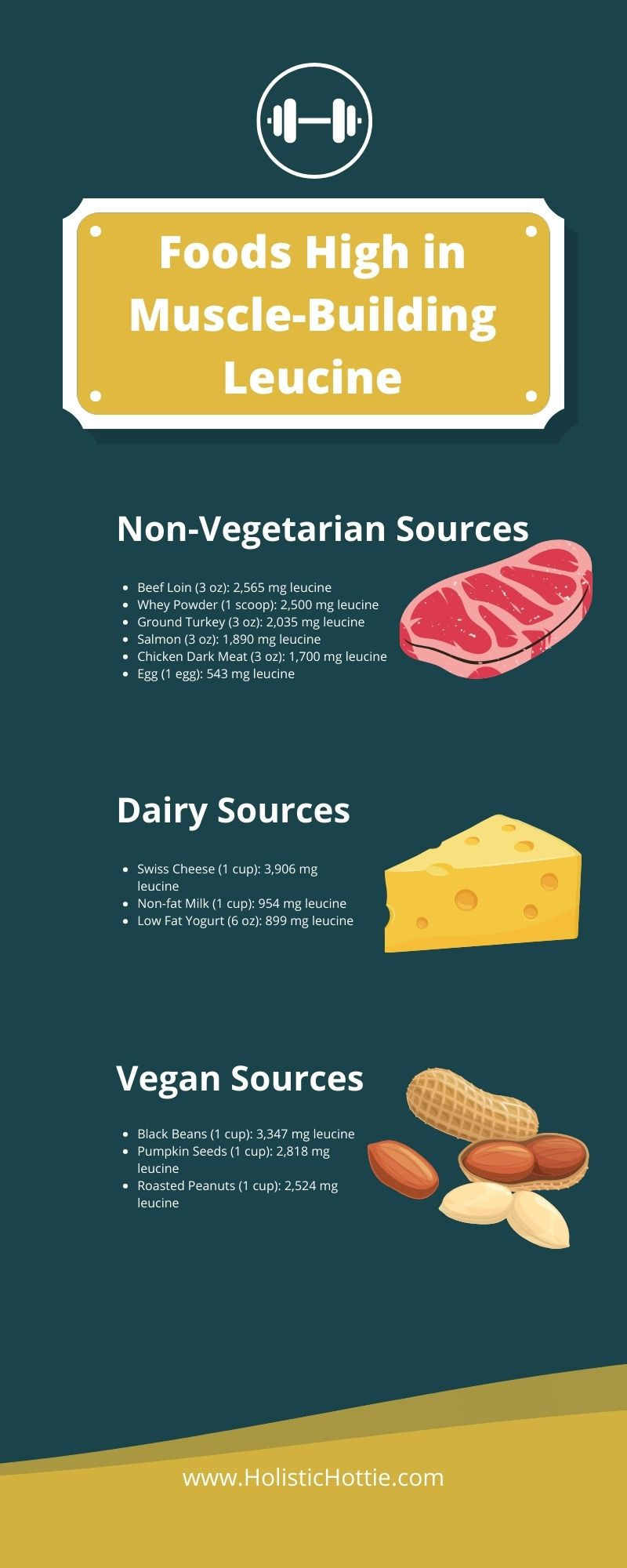Why This One Amino Acid Could Transform Your Muscle Building and Fat Loss Results
- Amira Lamb

- Aug 17, 2025
- 4 min read
You might think protein is protein. Hit your daily target, and you're good to go, right?
Turns out, it's more nuanced than that. While total protein intake matters enormously, there's one specific amino acid that acts like a master switch for muscle protein synthesis: leucine.
If you're serious about building muscle, recovering faster from workouts, or improving your body composition, understanding leucine could be a game-changer for your results.

What Makes Leucine Different from Other Amino Acids
Leucine is what scientists call a "branched-chain amino acid" (BCAA), but that's not what makes it special. What sets leucine apart is its unique ability to directly signal muscle protein synthesis—the process by which your body builds new muscle tissue.
Think of leucine as the foreman at a construction site. While other amino acids provide the building materials, leucine is the one telling your muscles when and how much to build. Without adequate leucine, even if you have plenty of other amino acids available, the muscle-building process doesn't get the green light.
This signaling function is why leucine has become a focus in sports nutrition and body composition research. It's not just about having enough protein—it's about having enough of the right kind of protein to trigger the muscle-building response.
How Leucine Impacts Muscle Building and Metabolism
Enhanced muscle protein synthesis: Leucine activates the mTOR pathway, which is essentially your body's muscle-building command center. When leucine levels reach a certain threshold, they trigger a cascade of events that leads to new muscle tissue formation.
Improved workout recovery: Because leucine helps initiate muscle repair processes, adequate intake can reduce muscle soreness and help you recover faster between training sessions. This means you can maintain workout consistency, which is crucial for long-term progress.
Metabolic benefits: Muscle tissue is metabolically active, burning calories even at rest. The more muscle mass you maintain or build, the higher your resting metabolic rate. This makes weight management easier over time.
Potential fat loss advantages: Some research suggests leucine may influence hormones involved in fat metabolism, though this area needs more study. The primary benefit for body composition comes from its muscle-building effects.
Best Leucine Sources for Muscle Building
Not all protein sources are created equal when it comes to leucine content. Here's where you'll find the highest concentrations:
High-Quality Animal Proteins:
Beef loin (3 oz): ~2,565 mg leucine
Whey protein powder (1 scoop): ~2,500 mg leucine
Ground turkey (3 oz): ~2,035 mg leucine
Salmon (3 oz): ~1,890 mg leucine
Chicken (3 oz): ~1,700 mg leucine
Eggs (1 whole): ~543 mg leucine
Dairy Sources:
Swiss cheese (1 cup): ~3,906 mg leucine
Non-fat milk (1 cup): ~954 mg leucine
Greek yogurt (6 oz): ~899 mg leucine
Plant-Based Options:
Black beans (1 cup cooked): ~3,347 mg leucine
Pumpkin seeds (1 cup): ~2,818 mg leucine
Peanuts (1 cup): ~2,524 mg leucine
Lentils and other legumes (moderate amounts)
Animal proteins generally contain higher leucine concentrations and more complete amino acid profiles, but plant-based eaters can meet their needs through strategic food combining and adequate total protein intake.
A Word About Collagen and Leucine
With the popularity of collagen supplements, it's worth noting that while collagen has benefits for skin and joint health, it's not a leucine powerhouse. Collagen is low in leucine and several other essential amino acids, so it shouldn't be your primary protein source if muscle building is your goal.
Think of collagen as a beneficial supplement for specific purposes, but not as your main muscle-building protein.
Strategic Leucine Timing and Intake
Post-workout timing: Consuming leucine-rich protein within a few hours of strength training can maximize the muscle protein synthesis response when your muscles are primed for growth.
Leucine threshold: Research suggests you need about 2.5-3 grams of leucine per meal to maximally stimulate muscle protein synthesis. This is roughly what you'd get from 25-30 grams of high-quality protein.
Distribution throughout the day: Rather than consuming all your protein in one or two large meals, spreading leucine-rich proteins throughout the day helps maintain elevated muscle protein synthesis for longer periods.
Total protein context: While leucine is important, it works best in the context of adequate total protein intake. Most active adults need 1.6-2.2 grams of protein per kilogram of body weight daily.
Determining Your Individual Protein and Leucine Needs
Your optimal protein and leucine intake depends on several factors: your body composition, activity level, training goals, and metabolic health. Rather than guessing, it's worth getting specific about your individual needs.
This is where tools like those in my Fuel Strategy Suite become invaluable. The calculators there can help you determine your total protein needs for optimal muscle building and recovery based on your specific goals and lifestyle.
The Bottom Line on Leucine for Body Composition
Leucine isn't a magic bullet, but it's a crucial piece of the muscle-building puzzle. When you prioritize leucine-rich protein sources and time them strategically around your training, you're giving your body the tools it needs to build and maintain muscle effectively.
The key is thinking beyond just total protein numbers to consider the quality and timing of your protein intake. This strategic approach can make a real difference in your muscle-building results and overall body composition progress.
If you're serious about optimizing your nutrition for your physique goals, understanding and applying leucine principles is definitely worth the effort. Your muscles will thank you for it.









































Comments